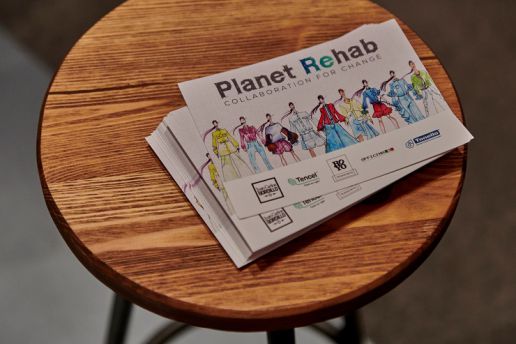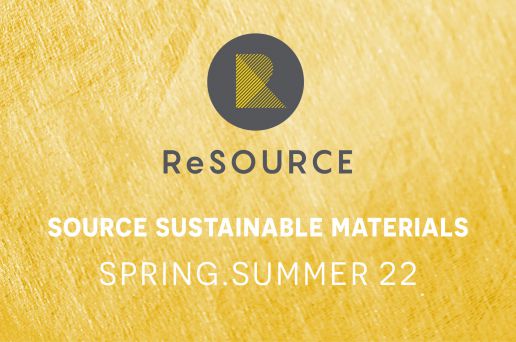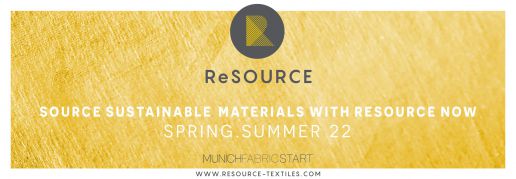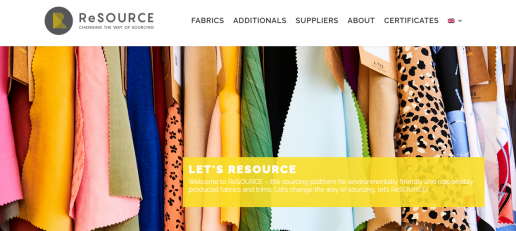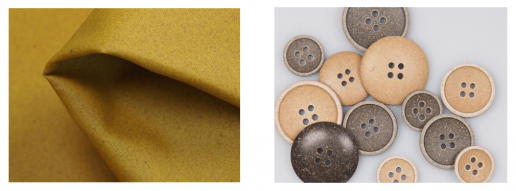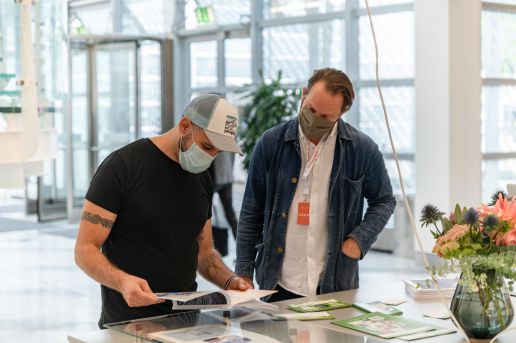Sustainable Textiles
Source ReSource SS22 Materials Now Online
New sustainable materials for Spring.Summer 22 are online on resource-textiles.com now! Discover the leading developments and take this opportunity to source them digitally on our ReSOURCE page.
We don’t want to reveal too much, but the top 3 Spring.Summer 22 materials you can discover on ReSOURCE are organic cotton, recycled fibers (especially polyester or cotton) as well as regenerated fibers like TENCEL, Ecovero or Acetate. Material highlights like Paptic®, the bio-based packaging material made of wood fibres used by We Nordic Label Studios Ltd, Amni® Soul Eco, the compostable nylon used by Nextil Group and Supreme Green Cotton, the project of our former Keyhouse exhibitor Varvaressos, which combines sustainability, transparency, traceability and quality from seed to yarn are ready to be spotted as well.
Our sustainability and innovation platform ReSOURCE offers focused, detailed information and concrete applications in sustainable and innovative textile and accessories materials. We invite you to discover new solutions towards a more sustainable textile industry, to collect inspiration for sourcing new trend setting developments and source them digitally online.
You can also look forward to ReSOURCE Autumn.Winter 22/23: We are currently organising VIEW Premium Selection from 29 – 30 June 2021 as well as MUNICH FABRIC START from 31 August – 2 September 2021 where you can experience the ReSOURCE materials live and in colour!
Don’t miss out to discover the updates on the ReSOURCE Page, take a look at our DIGITAL TREND SPACE with the Spring.Summer 22 trend forecast, plus our new BLUEZONE Living Page.
Please feel free to contact us with your questions regarding ReSOURCE via mail to info@munichfabricstart.com. We look forward to seeing you in Munich again soon!
Best regards and stay healthy,
Your MUNICH FABRIC START Team
A Look Back at 2020
It is popular to indulge in the mindset that we must put 2020 behind us and as quickly as possible. Ready to leave 2020 in the past and look only to the New Year for the future. As if there lays hope in 2021, like a magic wand it would undo and restart the world anew. But we must look back in order to look forward which is especially the case for creative innovator. In a year confronted with radical change, I can look back and break down general defining responses into three categories as:
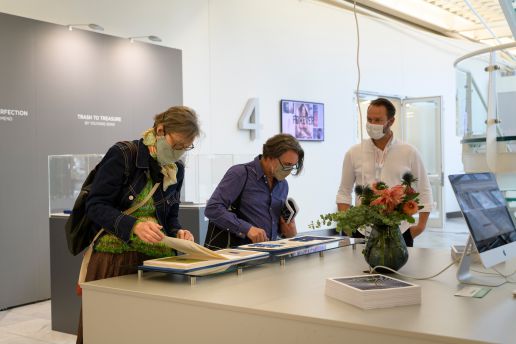
Those who ‘endured’ change.
Those who ‘embraced’ change.
Those who ‘ignored’ change.
I think, as an allegory, this is what designers and developers ‘do’ every day. It is part of their daily practice: endure, challenge and ignore. From this perspective the majority of society is now familiar with the same practices designers have faced working in their studios’.
Looking back at 2020 among the broad network of designers and students, I am pleased to see that they have continued their practices. Perhaps you’ll be surprised to hear that a lot of them even made profit from the changes that Corona brought us. Designers from the sustainable front were celebrated. Shy geniuses were noticed and people who were previously unaware of the major flaws in the fashion and textile industry, could no longer ignore the cracks in the system: 2020 revealed the cracks and broadened awareness.
A positive response to change: the focus on sustainability and the sense of urgency to work in this way has never been clearer and has never before revealed the system ‘as a whole’ as clearly as it seems ‘NOW’. In previous articles, I pointed out that designers have a natural instinct to reflect on their contribution, to focus on their niche-solution but to observe the system as a whole. Discover the Sustainable Innovations series on the Munique Blog.
Now, however, the designers are no longer the front runners and exhausted messengers, screaming alone into the dessert. Instead, the industry: mills, dyers, production factories, governments and consumers seem to join forces and come together to solve the bigger problems in the system. This sense of urgency is a huge call for collaboration.
Meaning that our designers are free to take up a new position, leading innovation to new frontiers without the frustration of static movement from the industry. More and more, designers are re-thinkers and importantly, value collaborators. From this perspective I am very hopeful. We are still in a stage of responding to the established system, economy and behaviours … BUT I am very sure that the movement of change will continue to get stronger and broader than ever.
The challenge for now is to keep the focus on virtue, value and volume which has been the focus of our Sustainable Innovations forum since the January 2019 edition of Munich Fabric Start.
Virtue: having an idea about what you do, why you act and how this impacts society and our planet in a positive way
Value: the added value to the system, others and the whole as an effect on a certain act
Volume: think modest and act from need, not from greed
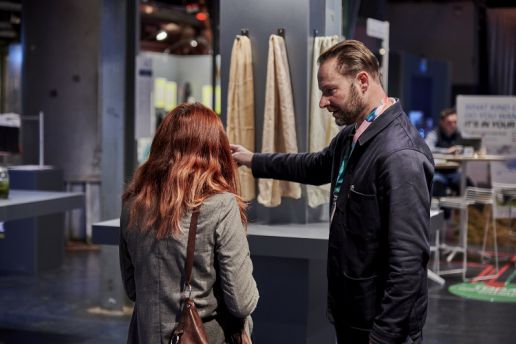
So, the actual risk in times of corona is to stress the choice between polarising OR collaborating; You are either ‘for’ or ‘against’. You are ‘in’ or ‘out’. The nuances, differences and challenges disappear from the stage. In the textile industry there is only one way: bridging the differences, uniting our similarities and cherish our authentic strengths, reminding me of the ‘Reach out and touch’ song.
The textile industry, as a front runner on fashion, can serve as the blueprint for a changing society and business practices. The ‘good’ practice. Connecting with the fact that all throughout history there exists no closer relationship to the human skin as textiles.

ABOUT THE AUTHOR
“I’m always keen to bring inspiring topics and sustainable projects into the spotlight through my work at the Sustainable Innovations forum at Munich Fabric Start and with each of my contributions to the Munique Blog. Check out @simonangelmfs for more sustainable projects, inspiration and discovery.“
Simon Angel | sa@simonangel.nl
Cocccon Wins German Sustainability Award
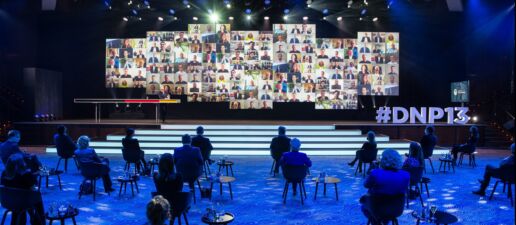
The German Sustainability Award (DNP) is the national award for top performance in the field of sustainability. The 2021 awards ceremony was held on 3 December 2020, as a hybrid event in which the finalists and the majority of the jury members were connected via live video. With nine competition categories it is the largest prize of its kind in Europe. A jury of experts selected 37 winners from 104 finalists in the new Design category which has been introduced in direct support of the United Nation’s Sustainable Development Goals.
Competing companies from the fashion and textile industry offered up a variety of sustainable solutions from recycled fashion to interiors and material development, resource-saving packaging solutions to furniture made from new materials and revolutionary waste reduction systems.
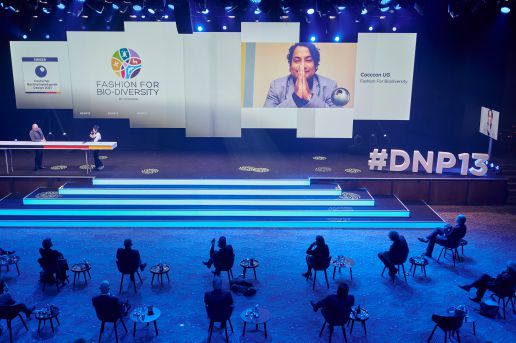
Among the winners were Cocccon, founded in 2012 by Indian designer Chanda Prakash. Recognised for pioneering “Fashion for Biodiversity” and producers of the bio-certified Peace Silk – a non-violent silk, the production of which only allows the silk threads to be extracted from the cocoons when the butterflies have already safely hatched.
“Our need to be fashionable endangers the earth’s biodiversity.
The increase in mass production has become threatening and is one of the main causes of the destruction of our ecosystems. It has also led to more frequent unexpected environmental disasters and resulting climate changes in textile producing regions.”
Cocccon designs & manufactures its textiles with the motto of creativity can care, caring for life and nature.
“We make sure that our designs do not adversely impact the environment. We converted a conventional silk farm into an organic one and processing is done in a new ecofriendly way.
This system requires less water, zero chemicals and zero emission. This has resulted in healing and revival of local biodiversity including microbes in the soil. This confirms fashion and destruction of ecology & biodiversity are not synonymous to on another. It is all about making responsible textiles for the next generations. We call this Fashion for Biodiversity.“
Chandra Prakash, Founder and Designer, Cocccon
All award winners receive a seal which is intended to help consumers determine which products and services they can consume with a clear conscience. Providing increased support for Cocccon as they continue to grow as the world’s largest producer of organic silk.
Cocccon also won second place at the 2018 HighTex Awards in Munich Fabric Start’s KEYHOUSE. This was the first time the innovation award recognised companies for their overall strategic commitment to resource saving production processes as well as innovative product development.
Cocccon were highly commended for their conscious production of luxury textiles and an innovative silk denim. The award winning GOTS-certified organic silk denim is biodegradable, with an anti-allergic finish as standard, the fabric is also handwoven and dyed using non-toxic chemicals. Prakash’s showcased the award winning Peace Silk as well as PET2Silk for the first time in Munich, which fabric shares similar qualities to silk but made of recycled PET bottles.
Prakash speaking about winning 2nd place in the 2018 HighTex Awards:
“The award is hugely important to us because it confirms our product philosophy and gives us a platform to spread the message further. We have been the world’s largest producer of organic silk for two years which constantly motivates when it comes to designing new products. The HighTex jury commended the denim-like silk shirt that requires only a fraction of water compared to conventional denim production without chemical additives.”
Chandra Prakash, Cocccon
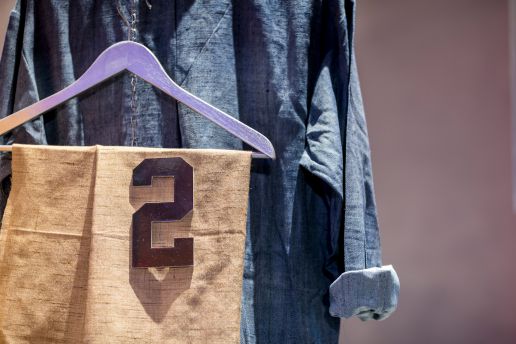
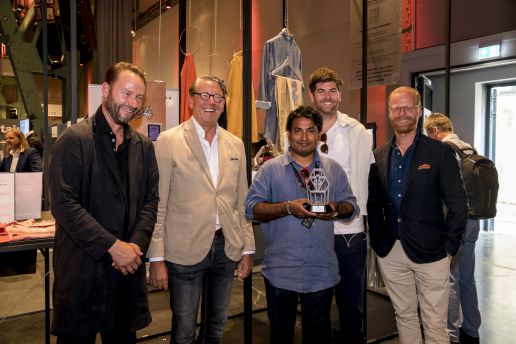

OPENING TIMES
2. MARCH 2021 · 9:30 – 18:30
3. MARCH 2021 · 9:30 – 18:30
4. MARCH 2021 · 9:30 – 16:00
LOCATION
MOC Munich | Halls 1 – 4 Groundfloor
Lilienthalallee 40
Germany, 80939, Munich
Planet REhab Capsule: Celebrating Sustainable Collaboration
It is great to have organic fibres, right? But as a producer of fibres, the influence on a more sustainable textile production often stops here. Textile garments have complex supply chains which sometimes imply production partners all over the world. That’s why the solution for a more coherent and holistic form of sustainability often lies in right supply chain partnerships!
That’s the idea behind the so called “Planet Rehab” capsule collection, for which renowned textile companies, who are environmentally committed, have partnered up to create something bigger than their own.
The collection was presented during last edition of KEYHOUSE in January. MUNICH FABRIC START feels especially committed about this project as all project partners – Lenzing, Tejidos Royo, Officina +39, and Tonello have been long term exhibitors at the fair.
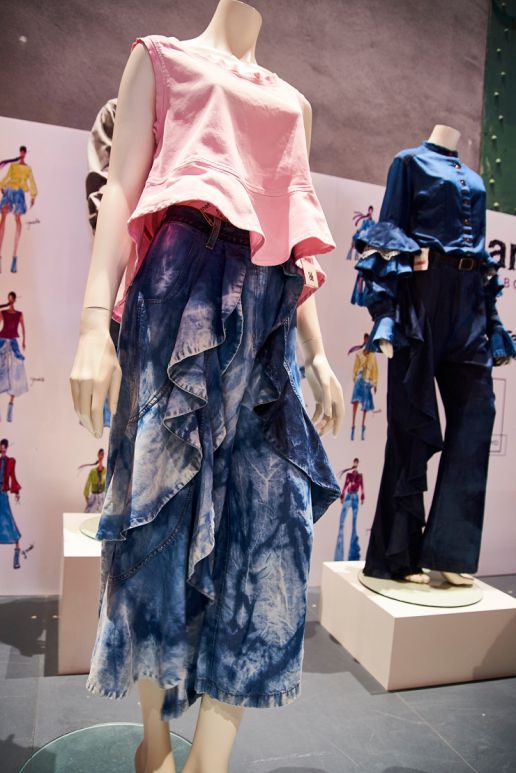
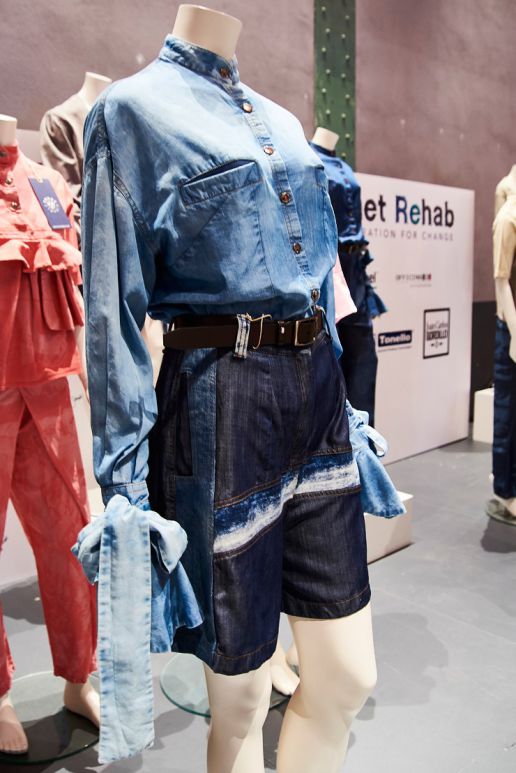
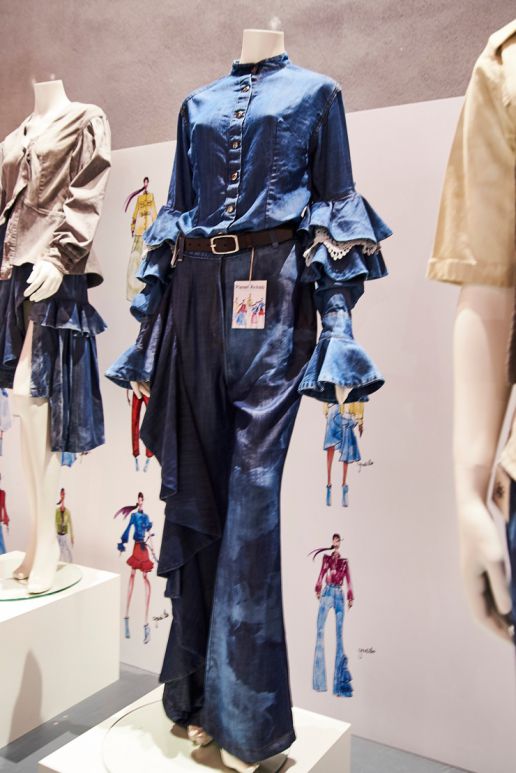
These companies recognized the success to achieving their own goals lies in fulfilling their shared ones, by working collaboratively and responsibly – seeking out more sustainable raw materials, implementing new technologies and employing processes that reduce resource utilization and waste. Juan Carlos Gordillo designed the Rehab collection around Lenzing’s TENCEL™ and TENCEL™ x REFIBRA™ branded lyocell fabrics from Tejidos Royo. The fabrics were dyed using Recycrom technology from Officina+39 and the resultant garments finished by Tonello.
Lenzing’s TENCEL™ and TENCEL™ x REFIBRA™ branded lyocell fibers enhance the sustainable qualities of the fabrics. Made from renewable wood in a closed loop, energy and resource efficient manufacturing process, TENCEL™ fibers and TENCEL™ x REFIBRA™ fibers made with recycled cotton scraps provide the fabrics with softness, smoothness, tenacity, and color intensity.
Spanish fabric producer, Tejidos Royo, creates “fabric with values” through the company’s commitment to the United Nations Sustainable Development Goals. The manufacturer’s vertical business model has substantially reduced its energy consumption and CO2 emissions through aggressive R&D and provides complete transparency and traceability for their customers
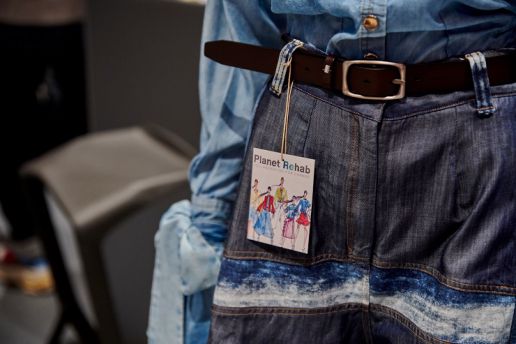
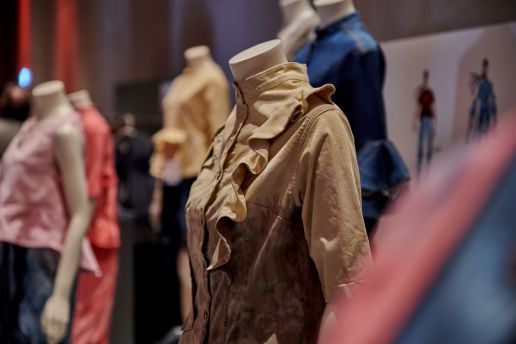
Officina+39’s Recycrom dyes are made from recycled clothing and textile scraps that are specially processed by these Italian experts through a sophisticated production process using only natural chemicals. Waste fabrics are crystalized into an incredibly fine powder that can be used as a pigment dye. Recycrom received the Hightex Award at MUNICH FABRIC START for Autumn/Winter 17/18.
Laundry specialist Tonello also based in Italy, contributed their ECOFREE 2 technology to the project. Fulfilling the needs of the designers and their customers, Tonello’s revolutionary washing process significantly reduces the water and hazardous chemical consumption typically associated with denim finishing.
Guatemalan designer, Juan Carlos Gordillo, applauds the Planet REhab objectives and used the member companies’ products to create fifteen women’s outfits that celebrate life and nature with exceptional color flair and a decidedly Latin influence. The full collection was displayed during the last edition of KEYHOUSE in January 2019, showcasing the eclectic and artistic style for which Gordillo is known for.
“Planet REhab is my tribute to the ocean with its deep colors and flowing shapes,” the celebrated designer says. “The collection also protects the ocean because it is created from the sustainable fibers, fabrics, dyes, and finishing techniques perfected by the Planet REhab collaborating companies. While many companies talk about being sustainable, these companies had the courage to actually create sustainable products and processes that benefit the industry, society, and the planet. I hope this collection can inspire other designers to prioritize sustainability in their creative processes.”
